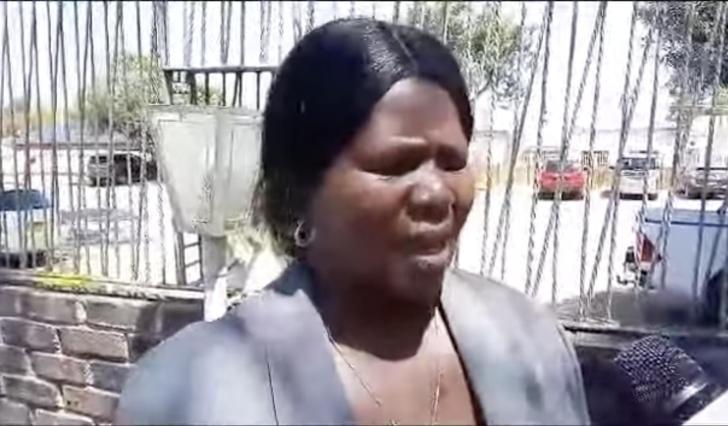News / Regional
'I've no plan, I'm now poor,' says ZANU-PF Councillor
11 Oct 2024 at 19:30hrs |
0 Views

Jostinah Ndondo, a ZANU-PF councillor for ward 18 in Insiza has failed to comprehend losing over one hundred and fifty-four cattle this year, describing the incident as greatest climatic betrayal in the history of women in agriculture.
Speaking during the national PRE-COP29 dialogue meeting on gender and the new collective quantified goal on climate financing (NCQG) in Harare this Friday, Ndondo recounts how she lost 154 cattle in a short period of time.
"As a once successful farmer, my dreams in agriculture have been shuttered when I lost large herds of cattle. Meanwhile, I have no plan, because I am now poor after counting my losses ranging from climatic abnormality-driven drought and other related livestock diseases," Ndondo said.
"I tried my level best to save my cattle from various climatic related diseases, but nothing could help in averting the situation. The vet officers (veterinary services officers) tried to advise me to use various techniques, both scientific and traditional, but it remained a futile exercise," Ndondo added.
"As women in farming or agriculture, we have been greatly affected by the impacts of climate change on our livestock. We are appealing to the government and other stakeholders to intervene in imparting relevant skills and knowledge amongst rural farmers in their tireless efforts to venture into successful agro-businesses," Ndondo pleaded.
A report titled Breaking the Barriers by CARE reveals that climate change is not only accelerating the global hunger crisis, but also deepening inequality, particularly for women.
In 2023, four out of the five top crises reported by women were directly linked to climate change.
Climate change is not just a threat to the environment, but a direct attack on women’s livelihoods, health and safety.
Global responses often fail to prioritise women, leaving them struggling to support their families with fewer resources and less help.
With the region experiencing severe climate impacts, including rising temperatures that lead to crop failures and increased insect infestations, providing land and support amongst women is crucial.
Speaking during the national PRE-COP29 dialogue meeting on gender and the new collective quantified goal on climate financing (NCQG) in Harare this Friday, Ndondo recounts how she lost 154 cattle in a short period of time.
"As a once successful farmer, my dreams in agriculture have been shuttered when I lost large herds of cattle. Meanwhile, I have no plan, because I am now poor after counting my losses ranging from climatic abnormality-driven drought and other related livestock diseases," Ndondo said.
"I tried my level best to save my cattle from various climatic related diseases, but nothing could help in averting the situation. The vet officers (veterinary services officers) tried to advise me to use various techniques, both scientific and traditional, but it remained a futile exercise," Ndondo added.
A report titled Breaking the Barriers by CARE reveals that climate change is not only accelerating the global hunger crisis, but also deepening inequality, particularly for women.
In 2023, four out of the five top crises reported by women were directly linked to climate change.
Climate change is not just a threat to the environment, but a direct attack on women’s livelihoods, health and safety.
Global responses often fail to prioritise women, leaving them struggling to support their families with fewer resources and less help.
With the region experiencing severe climate impacts, including rising temperatures that lead to crop failures and increased insect infestations, providing land and support amongst women is crucial.
Source - Byo24News
Join the discussion
Loading comments…



























